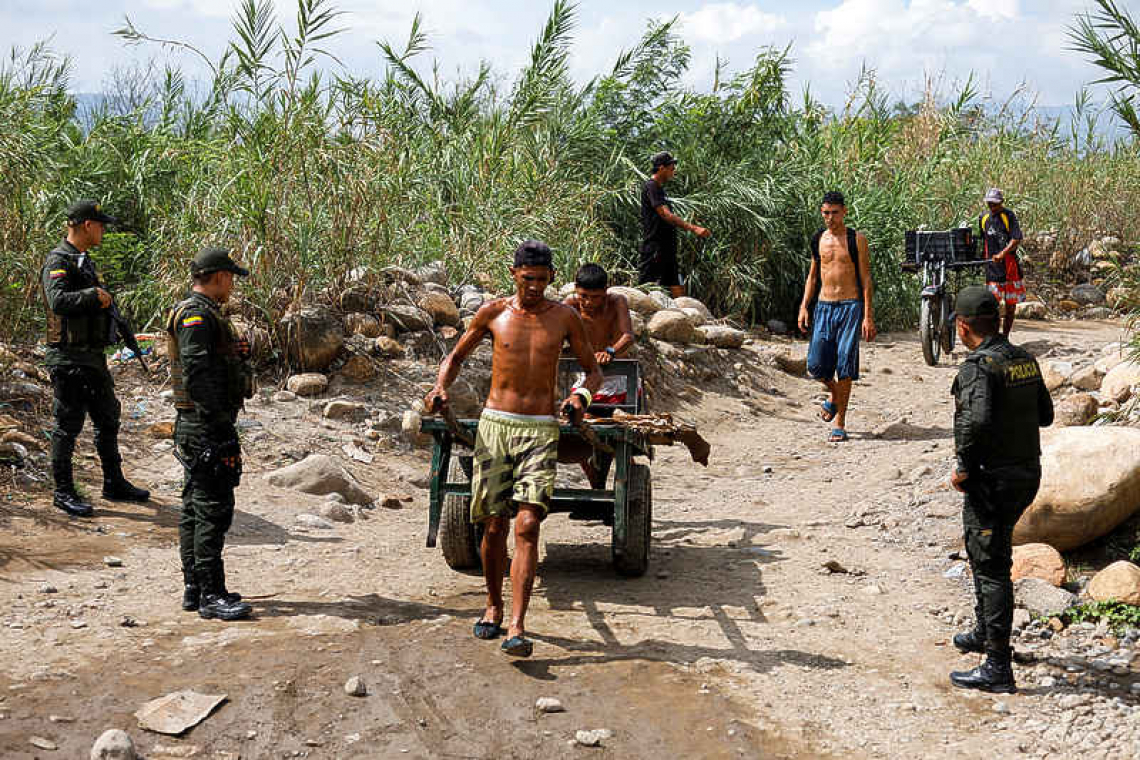SAN ANTONIO DE TACHIRA, Venezuela--Colombia and Venezuela reopened cargo transport at a major border crossing on Monday, potentially enabling billions of dollars in trade after years of icy bilateral relations and heavily-restricted economic ties.
The re-opening - which will allow goods like coal, toilet paper and fruit to move through crossings between the Colombian city of Cucuta and the Venezuelan state of Tachira - was a key campaign promise of Colombia's new leftist President Gustavo Petro.
Petro crossed the Simon Bolivar bridge on foot on Monday, standing on the Venezuelan side with his ambassador to Caracas Armando Benedetti, Venezuela's ambassador to Colombia Felix Plasencia, Venezuela's transport minister and other officials as they listened to military bands play each other's national anthems.
"I want the first people who benefit to be those who live on either side of the border, those who risked (illegal crossings) gangs of all kinds, multicriminals who could kill them, who could rape them," said Petro in later remarks, referring to dozens of irregular crossings controlled by crime gangs and home to smuggling and drug trafficking.
"The result should be a qualitative jump in human rights all along the Colombian-Venezuelan border," he said. Petro told journalists there was no set date for his first meeting with Venezuelan President Nicolas Maduro.
A truck loaded with rolls of aluminum and festooned with flags and red, yellow and blue balloons was the first to cross the frontier from Tachira into Colombia. The first truck moving from Colombia to Venezuela, one of four belonging to company Transporte Condor, carried medical supplies.
Four of the company's trucks were also set to move toilet paper, plastic glasses and textiles valued at some $80,000, manager Diego Bohorquez said.
Cargo trucks can cross each day between 10 a.m. and 5 p.m., Venezuela's transport minister Ramon Velasquez told a separate briefing, while pedestrian crossings will begin earlier. The border was already open to pedestrians, with many Venezuelans crossing to buy basic goods as their country experiences a long-running economic crisis.







